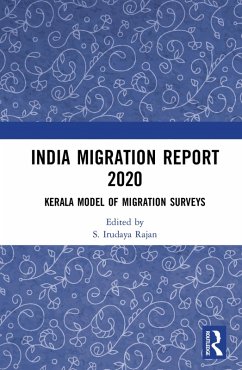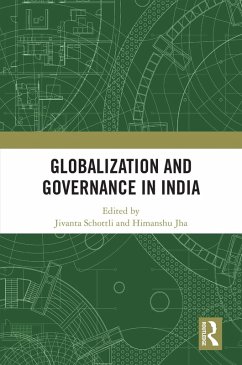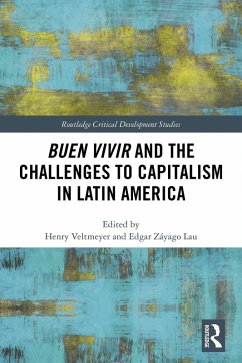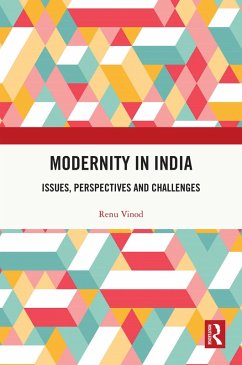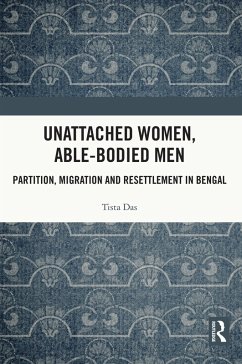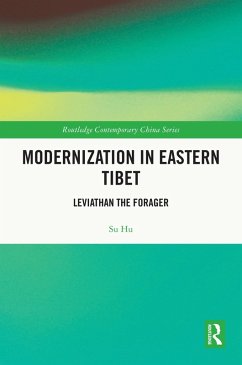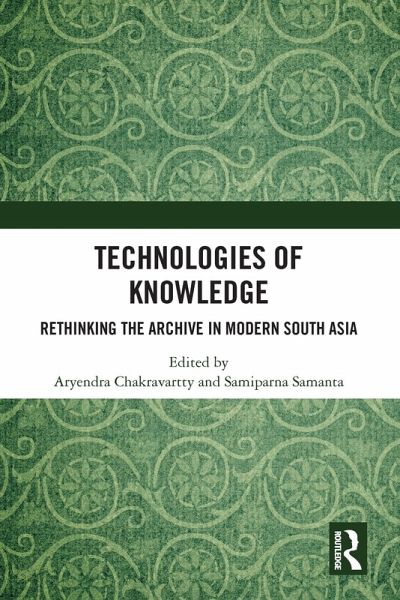
Technologies of Knowledge (eBook, ePUB)
Rethinking the Archive in Modern South Asia
Redaktion: Chakravartty, Aryendra; Samanta, Samiparna
Versandkostenfrei!
Sofort per Download lieferbar
42,95 €
inkl. MwSt.
Weitere Ausgaben:

PAYBACK Punkte
21 °P sammeln!
This book traces the role of technology in shaping, curating, disseminating, and archiving knowledge and life in South Asia. It focuses on empirical studies of transformative social processes unleashed by technological intervention in colonial and postcolonial contexts, which have changed our everyday lives and created new sites of domination and resistance, and new archives of history.Unraveling technology as an indicator of South Asia's encounter with modernity, the chapters in the volume interrogate how technology was witnessed in the production of culture, historicizing and preserving the ...
This book traces the role of technology in shaping, curating, disseminating, and archiving knowledge and life in South Asia. It focuses on empirical studies of transformative social processes unleashed by technological intervention in colonial and postcolonial contexts, which have changed our everyday lives and created new sites of domination and resistance, and new archives of history.
Unraveling technology as an indicator of South Asia's encounter with modernity, the chapters in the volume interrogate how technology was witnessed in the production of culture, historicizing and preserving the past, and establishing claims to heritage and history. In addition to examining the critical role of creative and commercial networks in establishing communities, the volume also scans the significant contribution of technology as a mechanism of social control. It highlights the pervasive nature of discourse that continues to assert its legitimacy, despite significant challenges to its structures of dominance, be it in the case of Bengali women or imperial dreams of curating a rapidly eroding past. In doing so, the volume emphasizes the discursive thoughts and practices that permeate the functioning of an empire and a postcolonial nation-state through narratives of resilience, appropriation, silences, and dissent.
This volume will be of great interest to scholars and researchers of science and technology studies, digital humanities, South Asian studies, modern history, colonialism, and post-independence India.
Unraveling technology as an indicator of South Asia's encounter with modernity, the chapters in the volume interrogate how technology was witnessed in the production of culture, historicizing and preserving the past, and establishing claims to heritage and history. In addition to examining the critical role of creative and commercial networks in establishing communities, the volume also scans the significant contribution of technology as a mechanism of social control. It highlights the pervasive nature of discourse that continues to assert its legitimacy, despite significant challenges to its structures of dominance, be it in the case of Bengali women or imperial dreams of curating a rapidly eroding past. In doing so, the volume emphasizes the discursive thoughts and practices that permeate the functioning of an empire and a postcolonial nation-state through narratives of resilience, appropriation, silences, and dissent.
This volume will be of great interest to scholars and researchers of science and technology studies, digital humanities, South Asian studies, modern history, colonialism, and post-independence India.
Dieser Download kann aus rechtlichen Gründen nur mit Rechnungsadresse in A, B, BG, CY, CZ, D, DK, EW, E, FIN, F, GR, HR, H, IRL, I, LT, L, LR, M, NL, PL, P, R, S, SLO, SK ausgeliefert werden.






